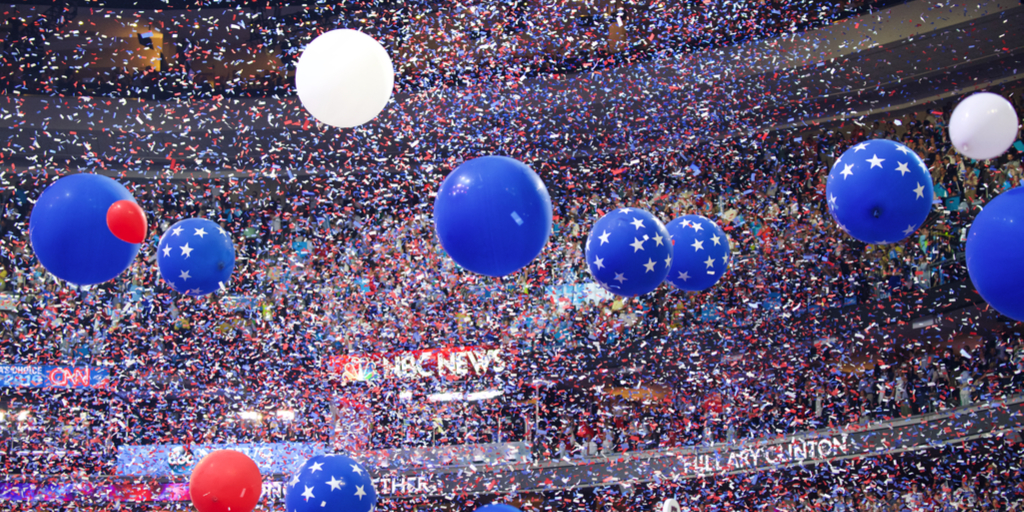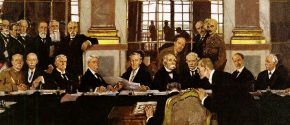Nixing the Superdelegate Votes Is the Completion of a Long Progressive Project
In Chicago this summer, the Democratic National Committee meeting made headlines when it voted to no longer allow its “superdelegates” a vote in the first ballot of its Presidential nomination. Superdelegates are delegates to the nomination convention who are not pledged through primaries or caucuses; typically they are elected officials and long-time party members.
Most commentary focused on the immediate implications and causes leading to this change, namely the fact that supporters of Bernie Sanders in the 2016 election felt cheated when the superdelegates sided with Hillary Clinton. Those party insiders were lined up from the beginning in support of Hillary, and while it may be true that superdelegate votes by themselves were not enough to win the nomination, Bernie supporters unsurprisingly felt the deck was stacked against their outsider candidate from the start. Of the 4,763 delegates at the 2016 Democratic National Convention, 15% were superdelegates who overwhelmingly sided with Clinton.
Other pundits focused on the somewhat distasteful complaints from party insiders about losing their power. Former Chair of the DNC Donna Brazile defended superdelegates by arguing she had “earned [her place] at this table,” and was roundly criticized for it. The critics asked: why not let the people decide through primaries who gets to sit at the table in the party? Brazile’s comments were considered distasteful because they seemed anti-democratic, and thus out of place (especially in a party which calls itself the “Democratic” party!). But Donna Brazile perhaps did have a point. In our system, political parties are of course free to organize themselves however they wish, and there are no laws or clauses of the Constitution that exclude parties from valuing experience and loyalty higher than current popularity. Parties are not even recognized in the Constitution, much less their nomination processes.
The larger, historical significance of this change has been little commented on: that the Democratic Party has taken the last step in a century-long transition from party-centered nomination to candidate-centered nomination. This transformation is something Progressive theorists such as Woodrow Wilson greatly wished for, in order to wrest control of political parties out of the hands of machine operatives and into the hands of more idealistic politicians. At a deeper philosophical level, Wilson wanted this change in the parties so that political leaders would be able to channel the general will of the populace in the direction History needed us to go. The Progressives like Wilson cared little about traditional American ideal of parties serving as mediating, moderating structures.
It is ironic that the Republicans, rather than the Democrats, were the first to complete the transformation of their party nominating process to the Progressive model. As Jeffrey H. Anderson & Jay Cost put it, by 1972 Republicans had “adopted a process that was designed for the Democratic Party by its most liberal activists”—that is, presidential selection purely via primaries. University of Virginia political science professor James Ceaser, in his path-breaking 1979 book Presidential Selection: Theory and Development, argued that the parties adopted Progressives’ ideas about Presidential nomination in three stages. During the first stage, from 1912-1920, primaries were first introduced through state laws and were used to select some of the delegates. However in a second stage, from the 1920s-1960s, party organizations reasserted their control, making for a “mixed” system of primaries and superdelegates. In a third stage, from the late 1960s to our present time, primaries increasingly are the main way delegates are selected to nominate a president, in both parties. The 1960 Democratic Nomination Convention where John F. Kennedy was chosen is seen by political scientists as one of the last conventions whose result was not a foregone conclusion, where the real decision was made during the convention, behind closed doors in a “smoke-filled room.” Much like the romantic memories of the Kennedy Presidency as a kind of “Camelot,” the Kennedy convention and those preceding it are the conventions for which historians and political scientists reminisce and yearn to repeat.
And perhaps they should; perhaps we all should. James Ceaser, in a recent interview with The Atlantic revisiting his book, points out that party insiders having less and less control of the Presidential process comes as a trade-off. Since primaries involve the people more, they avoid secret bargains, but they are also more susceptible to an out-in-the-open demagoguery. A party-centered nomination process through superdelegates yields Presidential candidates who are more moderate and have the long term interests of the party organization at heart. The smoke-filled rooms of yesteryear were full of eminently practical politicians whose overriding interest was in maintaining a coalition for decades to come, whether or not the election at hand was won. To put it in the words of James Q. Wilson, they were “professional” democrats (as opposed to “amateurs”), who most of all tried to keep everyone in the party content. They were not inclined toward radical candidates of any persuasion.[1] By contrast, the candidate centered nomination process with its primaries yields Presidential candidates who care most about their own election and their own stances on the issues. What the rest of the party thinks is an afterthought. Perhaps the party should change to think their way, these candidates reason.
It should come as no surprise then, in a time without party-insider control of the process, that outsiders—literally people who until recently were outside the Democratic and Republican parties—would prosper. Ours is now a party system designed to enable candidates such as Bernie Sanders and Presidents Donald Trump, like them or not. Whether or not the American people get a great Presidency out of the deal, they should not forget that they are leaving behind a great party system.[2]
[1] One notable exception to this rule is the nomination of William Jennings Bryan by the Democratic Party in 1896, which involved odd circumstances.
[2] I would like to thank Jeff Hedges for the exchange of ideas we had about this issue, which encouraged me to think more about it.



